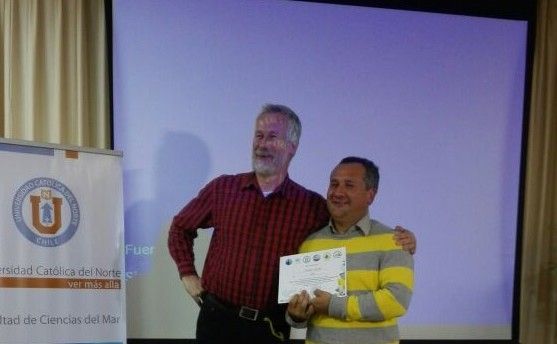Chilean delegation participates in training course on micro plastics analysis techniques.
August 16th, 2016
Luis Ossa Medina

Vladimir Murillo Haros.
It was supported by Environment Program of United Nations (PNUMA, as per Spanish acronym) and the Permanent Commission of South Pacific (CPPS). Two representatives respectively from Colombia, Ecuador, Peru and Chile attended to the course. In addition, researchers from Panama and Puerto Rico were also invited.
The activity was part of common concern from General Authority of Action Plan stated at the meeting of 2015 on the threat of micro plastics to humans, Protection Protocol and Regional Program of marine rubbish from Southeast Pacific.
The course consisted of theoretical and practical classes (field and laboratory) under the direction of Dr. Martin Thiel, leading researcher and Dr. Nicolas Ory. The overall objective of the training was to evaluate the presence of plastics and micro-plastics in fish, sediment and water. The activities involved presentations on the impact of plastic waste, field trips to obtain sediment on the beach and trips on board the vessel of the University for obtaining water samples; which were then analyzed in the laboratory, jointly with analysis of the stomach contents of planktivorous fish (which feed from plankton).
The marine biologist, Luis Ossa Medina, who participates in the project “Scientific Observer Program” in charge of the specific objective of assessing knowledge of “Annex V” of the International Convention “Marpol 73/78” and crew behavior of boats fishing, indicates “that these types of courses are important to advance in the study on pollution’s impact caused by marine rubbish, especially plastics, whose highly persistent materials are prohibited by regulation from being thrown into the sea. In addition, the professional indicates us that plastics are in the marine environment at a microscopic level with evidence of ingestion by fish and other organisms.
Finally, the researcher noted that thanks to the techniques acquired, in the future, the idea is to perform studies using Scientific Observer coverage held by the Instituto de Fomento Pesquero.”
